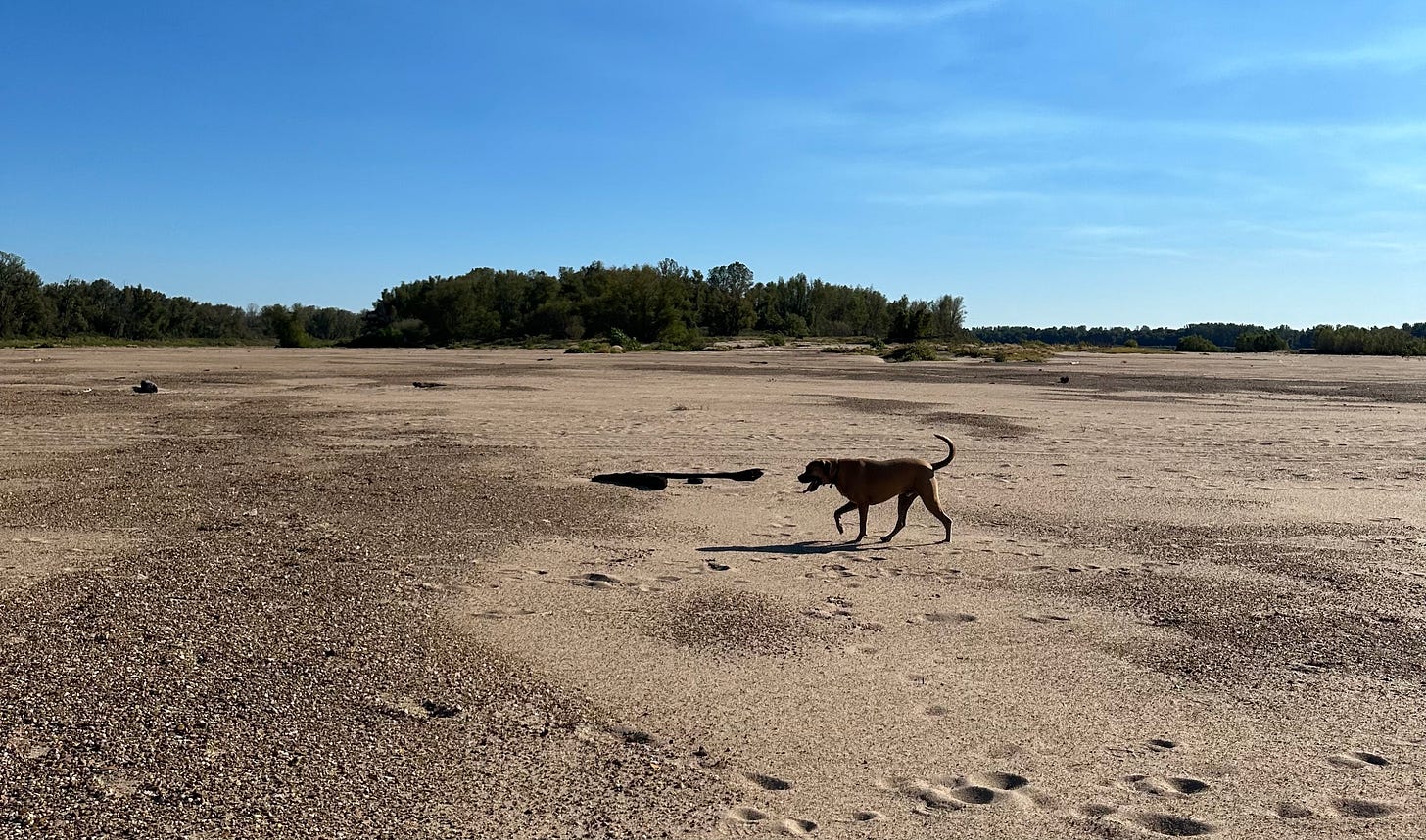
I do my best to minimize my self-promotion here, but I think my publishing overlords at W.W. Norton would be displeased if I bury the lede this week: The Great River now has an official release date—June 11, 2024—and is available for pre-order.
I really believe this book could be a hit, and from the little I know about these things, pre-orders matter: they help determine where marketing dollars go, what books the New York Times chooses to cover, etc., etc. So you’ll hear me ringing this note a lot in the coming months: if you know you want a copy, please go ahead and order!
I’d recommend you call up your favorite local bookstore and ask for the book, or that you support local bookstores by buying it at Bookshop—but it’s available at the big guys, too. (Including, bizarrely, Walmart.)
And, as a bit of enticement, here is the beautiful cover that the art team at Norton worked up:
And now, on to our regular scheduled programming…
Reader mailbag: the kudzu creep
Matty Bengloff, proprietor of the greatest dang fro-yo shop in Mississippi, was curious about kudzu—and why, particularly, it did not seem to be expanding across the Delta in Mississippi in Arkansas.
That raised several questions: is kudzu still expanding or not? What kinds of places does it prefer? What causes it to spread?
After some sleuthing in Google Scholar, I tracked down a biologist at Purdue University Fort Wayne named Jordan Marshall who recently published a paper about how kudzu is primed to invade the Midwest.
So, yes, kudzu is still spreading, though we have a closer eye on its spread beyond the South than within it. (Marshall suggested that because we expect to see kudzu in the South, it’s harder to notice any subtle shifts in coverage.) Long believed to be intolerant to freezing weather, is now known to be able to adapt to lower temperatures. Marshall thinks the Great Lakes region is the likely next victim of its spread. As for why it’s spreading north, humans are the answer. We tend to carry it, whether intentionally (as an attempt at erosion control) or accidentally—though it’s impossible to know which is the case in Michigan, where kudzu has been thriving since at least 2009.

Reader mailbag: saltwatered gardens
Simeon Carpenter was eager for more information on the Mississippi River saltwater wedge, and particularly what it might do to New Orleans gardens.
Fortunately, the point may be moot, since the saltwater appears to be retreating. (While New Orleans may be spared, the problem persists downstream.) For those still worried, though, the LSU AgCenter has some useful answers. One of the key takeaways: use this reprieve to invest in a rain barrel, which will be your best way to flush out your potted plants if the problem ever recurs. Which seems quite possible; as Tristan Baurick pointed out in the Times-Picayune, the Army Corps of Engineers has long understood that deepening the river for navigation could cause saltwater intrusion.
Seeing the sandbars
One upside of this low river: there’s a lot more place for humans to get out and play. I was up in the Mississippi Delta this weekend, and the trek across the sandbar at the Great River Road State Park had turned into a twenty-minute hike. Want to see it yourself? The Quapaw Canoe Company is hosting a Marquette & Joliet 350th Anniversary “Turnaround Expedition” at the end of the month and still has a few seats left.
Update: Hunting the black bear
It’s looking increasingly likely that Louisiana will open a hunting season for the black bear. I’ll keep y’all posted with updates as the proposal progresses.
Got a Southern nature question? A recently discovered spot you want to share? Hit reply and let me know!





Thanks for sharing the book availability...I've never anticipated a book 8 months prior to release, but I'm pretty stoked for this one! I love the Harold Fisk river maps, and it's cool to see one was selected for the book cover art.
Back to comment on the LBB...love that they delisted less than a decade ago and now want to hunt 🤦🏼♀️ Florida had such an uproar over their hunting season a few years ago they ended up canceling it. I can only hope
Louisiana does the same.